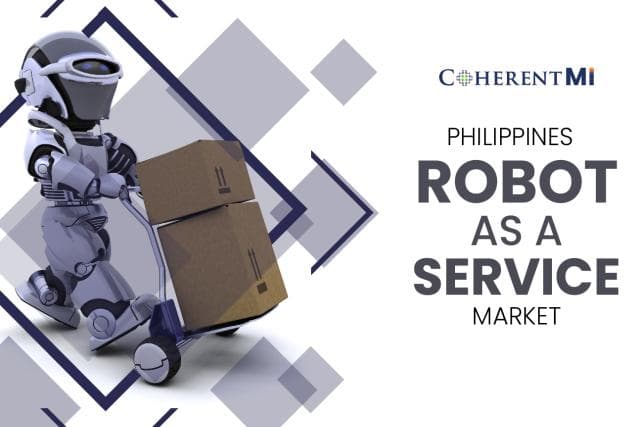The Rising Popularity of Cloud Robotics in the Philippines
Cloud robotics and robot as a service (RaaS) technologies have seen significant growth in popularity in the Philippines over the past few years. With internet connectivity rates improving across both urban and rural areas of the country, more businesses and individuals now have access to cloud-based robotics solutions delivered remotely through the internet. RaaS allows users to control robotic devices through simple APIs and interfaces rather than requiring complex robot programming skills. This accessibility has made cloud robotics appealing for applications ranging from industrial automation to education.
Enabling Flexible Automation for Manufacturers
Small to medium manufacturers in the Philippines have been early adopters of RaaS to automate repetitive and hazardous tasks on production lines. By accessing robot fleets managed in the cloud, these companies gain flexible robotics capabilities without large upfront capital costs. Robots can be provisioned on an as-needed basis through simple pay-per-use subscription plans. This allows manufacturers to scale automation up or down depending on production demands. It also gives them options to trial new robotic technologies before committing to in-house robot purchase and maintenance. Several RaaS providers have partnered with robotics technology companies to offer integrated solutions tailored for automating weldings, pick-and-place operations, palletizing and other repetitive manufacturing tasks.
Improving Quality Control and Inspection Processes
RaaS has helped advance quality control and inspection workflows for Philippines manufacturers. Cloud-based robot fleets equipped with cameras, sensors and machine vision capabilities can conduct automated inspections remotely without needing on-site personnel. Visual inspection robots stream live footage to offsite quality engineers who monitor production lines for defects. Any anomalies detected through computer vision algorithms are flagged in real-time for corrective actions. This remote quality monitoring improves oversight, reduces human error and helps ensure consistent product quality even when inspectors cannot physically visit production facilities. Several pharmaceutical, food processing and electronics companies have deployed visual inspection robots from RaaS platforms to digitally transform and enhance reliability of their quality control processes.
Delivering Educational Robotics Beyond Major Cities
Robotics education has gained momentum in the Philippines as a hands-on way to spark students' interest in STEM fields. However, the high equipment costs and specialized skills required have limited access mainly to elite schools in major urban centers. RaaS is helping expand educational robotics to rural schools that previously lacked resources for robotics laboratories. Students can now access virtual robotics labs hosted in the cloud through any internet-connected device. They can control simulated or physical robots remotely to learn programming, engineering and design principles without needing to purchase or maintain robot hardware on-site. This equalizes opportunities for students everywhere in the country to benefit from innovative tools that engage learning through physical computing. It also empowers teachers in remote schools to incorporate robotics into their STEM curriculum through intuitive cloud interfaces.
Streamlining Healthcare with Surgical and Rehabilitation Robots
Leveraging RaaS, hospitals in the Philippines are exploring surgical, rehabilitation and assistive robotics to enhance patient outcomes. Surgical robots accessed through the cloud enable minimally invasive surgeries to be performed at hospitals with skilled surgeons but without requiring large capital expense of in-house robot setups. They are being trialed for speciality procedures like urology and gynecology surgeries. Rehabilitation robots help physical therapists deliver personalized gait therapy and motor skill exercises to recovering stroke patients or those with mobility issues. Connected over the internet, these robots can be efficiently shared across clinics for round-the-clock therapy. Assistive robots also aid nurses through tasks like fetching supplies, documentation and patient monitoring to optimize staffing. RaaS platforms that provide HIPAA-compliant connectivity ensure the privacy and security demanded for deployment of robots dealing with sensitive healthcare data.
Empowering SMEs and Startups with Innovation on a Budget
By offering elastic access to advanced robotics capabilities, RaaS helps level the playing field for SMEs and startups in the Philippines. On relatively small budget outlays compared to developing technology in-house, these smaller companies can experiment with diverse robotics applications on an ongoing subscription model. They can develop prototypes, test concepts and scale deployment as abilities and funds allow - lowering barriers that otherwise limit technical exploration. Several startups have tapped commercial RaaS platforms to develop things like delivery droids, agricultural inspection bots, collaborative robot arms and IoT connected devices. This fosters cross-pollination of ideas and spurs local robotics innovation without constraining it to large enterprises alone. It highlights RaaS potential to empower diverse entrepreneurship driving technology advancement across the country.
Regulatory Sandbox Crucial to Maximizing RaaS Impact
Wider implementation of RaaS hinges on clarity around an enabling regulatory framework governing cloud robotics service delivery and data privacy in the Philippines. A responsive policy 'sandbox' approach is needed to balance oversight with incentivizing local innovation. Regulators will require guidance keeping pace with the rapid evolution of technologies like AI, machine vision and wirelessrobot control that underpin contemporary RaaS platforms. Commercial testing of novel robotics applications should have clear pathways for securing provisional approvals to assess functionality, safety and social implications. Data privacy remains paramount, particularly for healthcare robots handling sensitive patient information. However, overbearing restrictions will stifle pilot programs helping transform various industries. A progressive yet sensible regulatory balance through constant review and refinement stands to maximize RaaS benefits transforming the Philippines' digital future.
In summary, RaaS presents immense opportunities across industries in the Philippines as internet connectivity pervades. Accessible, economical and scalable robotics delivered through the cloud can empower diverse automation, manufacturing enhancement, educational expansion, healthcare delivery and startup ventures aligning with national development priorities. A supportive regulatory framework balancing oversight with fostering technical experimentation holds the key to unleashing RaaS' full transformative potential across the country.
